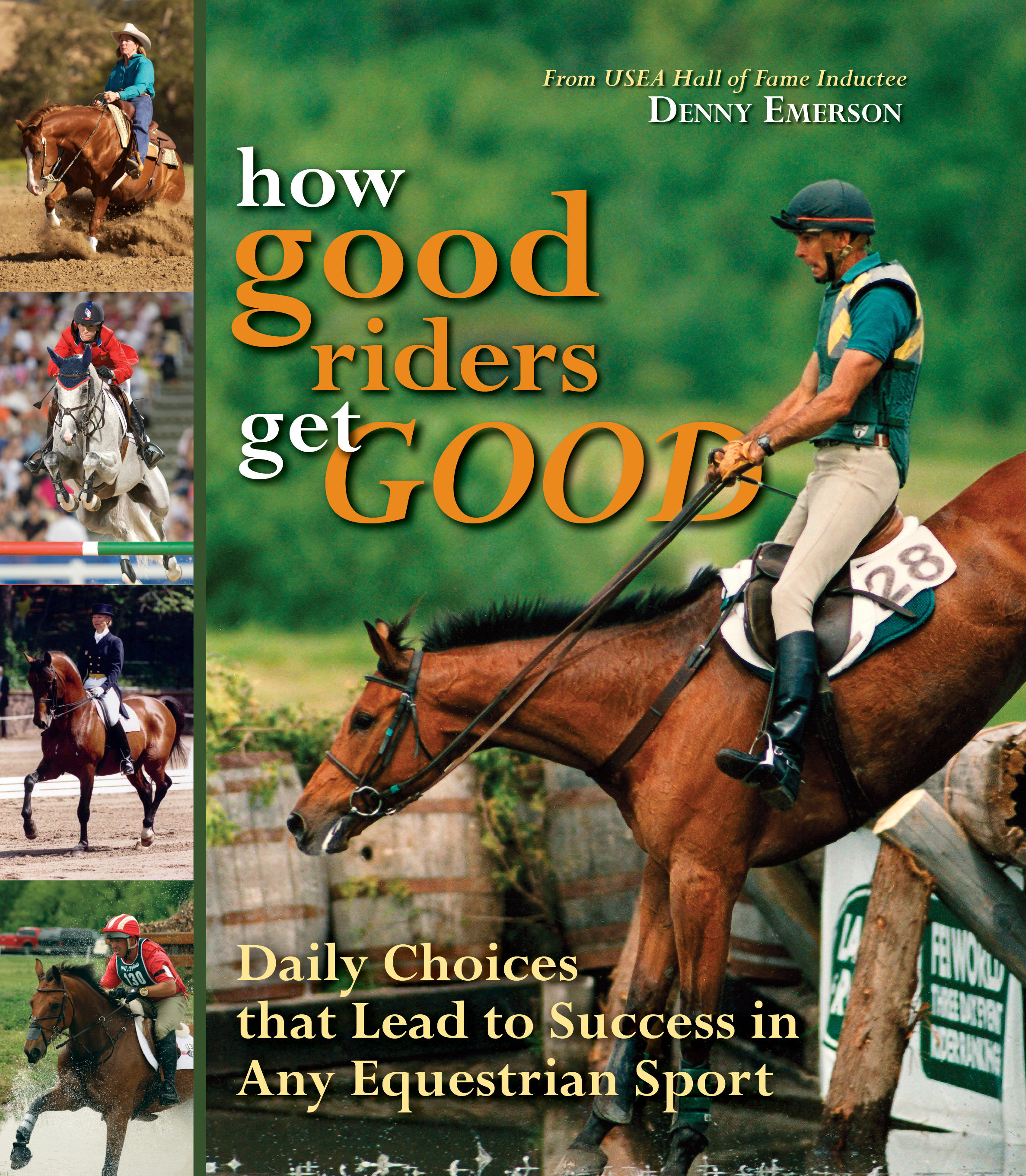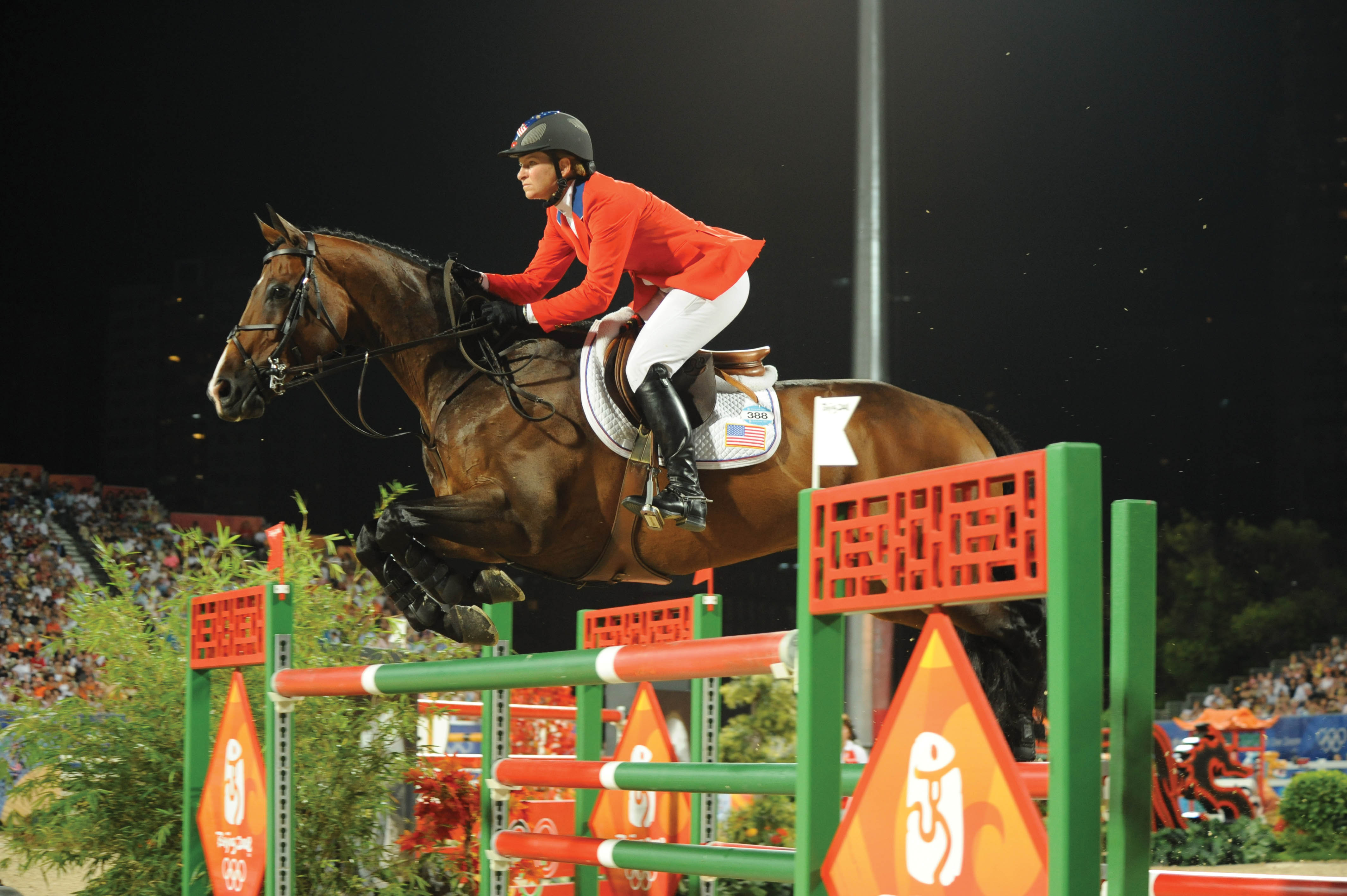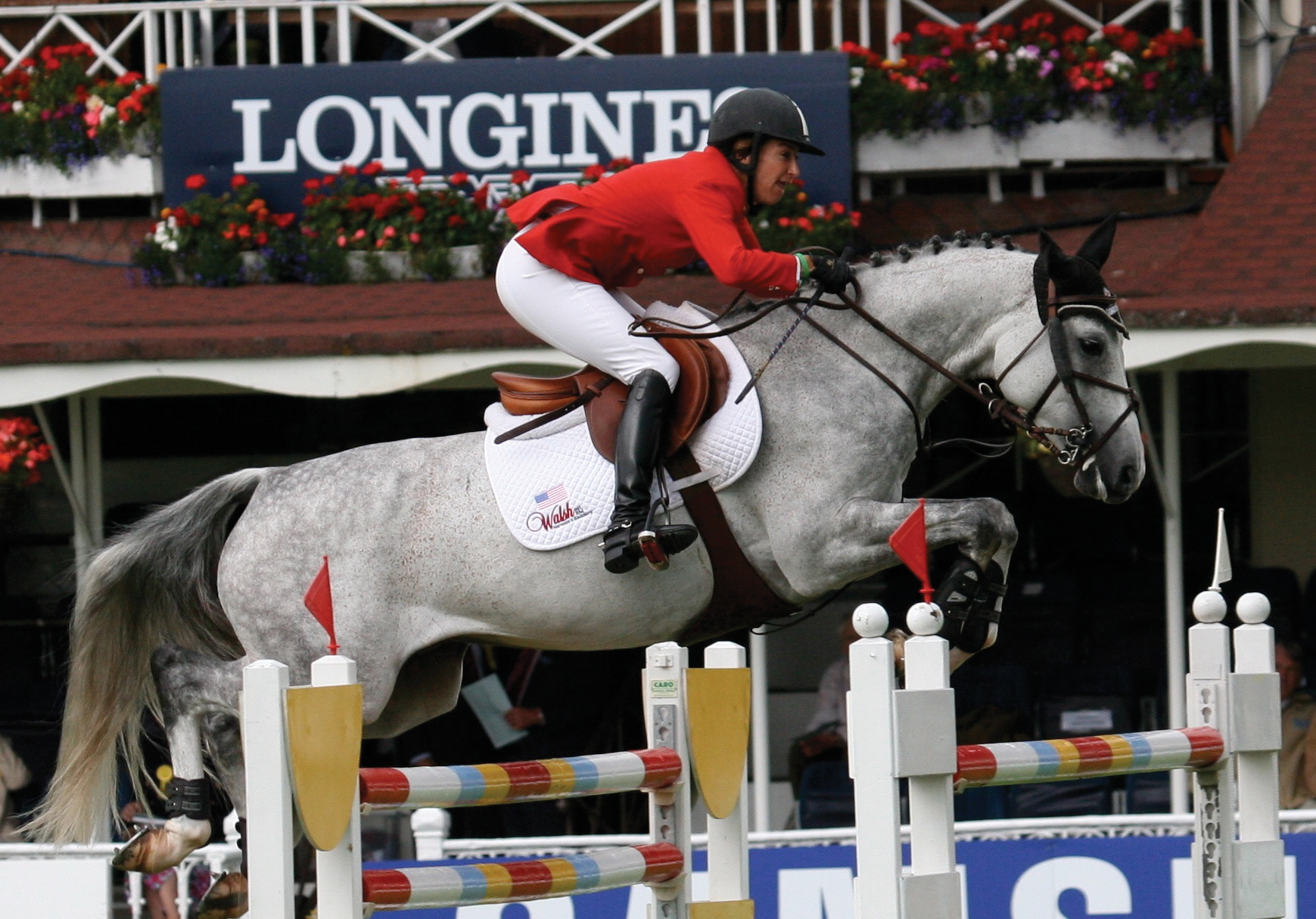
Image courtesy of Trafalgar Square Books
In the book How Good Riders Get Good by Denny Emerson, Beezie Madden and Laura Kraut—along with 21 other top riders and trainers—share why they think they “made it” in the uber-competitive equestrian world. In this excerpt, Beezie and Laura list some of the ingredients that catapulted them to success as international show jumpers, as well as offer advice for those of us still reaching toward elusive goals of our own.
BEEZIE MADDEN
I think I got good because:
- I wouldn’t say I was much more naturally talented than a lot of other riders—maybe not even as much as some! But I think I have a way of communicating with horses, a feeling for what they need: when they can take some pressure, when they need a little break.
- My family had gotten to know top equitation trainer Mike Hennigan when I was very young; he leased their stable in Wisconsin for a while. They contacted him when I was ready to aim for the national equitation finals, and I rode from his barn during my last year in the juniors.
- One year after the juniors, I went to work for international jumper star Katie Monahan Prudent. I did a little of everything: managed the equipment, taught a little, rode a little, exercised horses, braided … I think all of that helps your riding in the end. Katie really shaped the beginning of my career in the jumpers.

Image courtesy of Trafalgar Square Books
My most important advice:
Be willing to start off by doing anything you can for good people. Sometimes aspiring riders pass up good opportunities to work with top people because they want more of a riding job, and the honest professionals will tell them that they don’t have much for them, riding-wise — at least to start with. But you have to learn all aspects of the business. If you go to work for top people, you’ll go to the best competitions and meet all the right people and get exposed to everything that’s available to you out there. You need to see what it means to compete against the best; even once you’re good, you need to keep going to Spruce Meadows and Aachen. Even at my level, if you don’t go to the very hardest competitions you can let your expectations or your level of competitiveness lapse.
LAURA KRAUT
I think I got good because:
- Riding jumpers was something I wanted from an early age, but I didn’t have a lot of financial backing so I had to wait. During my junior career I groomed and braided, and didn’t mind doing any of that; it was all a part of the whole. When I went to work for Roger and Judy Young after the juniors, I continued braiding a lot to make extra money—basically, just to be able to ride anything!
- My years in the hunters taught me a lot of finesse, how to quickly and smoothly get a horse to jump in the best possible style. You have to sit quiet on the hunters and get them to respond just off “feeling,” without taking a pull or giving a kick. I was nineteen before I sat on my first jumper, but that feel and fluidness gave me an advantage. I got a lot of catch riders on hot, sensitive horses when I first started my own business.
- Then, when Geoff Sutton asked me to ride his Thoroughbred/Quarter Horse jumper Simba Run (not a typical jumper), we just clicked, maybe because of everything I’d learned up to that point. We were team alternates for the Barcelona Olympics (1992) and represented the United States at the 1994 World Cup Finals.
- I’ve always been open-minded about getting pointers from anyone. I got a lot of good help along the way—from Emil Hendriks in Holland, from Nick Skelton and Katie Prudent (who was very instrumental in helping me get to Europe to show), and, of course, from George Morris.

Image courtesy of Trafalgar Square Books
My most important advice:
As I’ve gotten older I realize that patience is a very important quality in this sport. It’s important not to get upset or frustrated when the things you wish for aren’t happening right away. Getting to the top takes a lot of determination and hard work. That, plus patience, helps you to be ready when the other essential ingredient comes your way: a little bit of luck at the right time.
This excerpt from How Good Riders Get Good by Denny Emerson was reprinted with permission from Trafalgar Square Books (www.horseandriderbooks.com).
